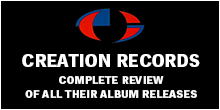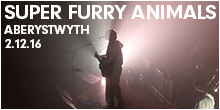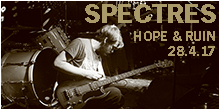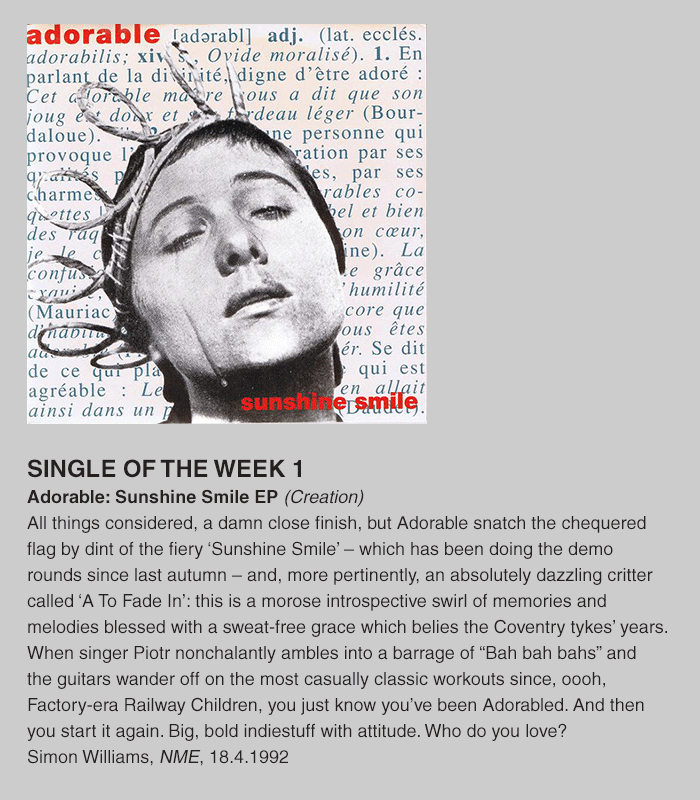

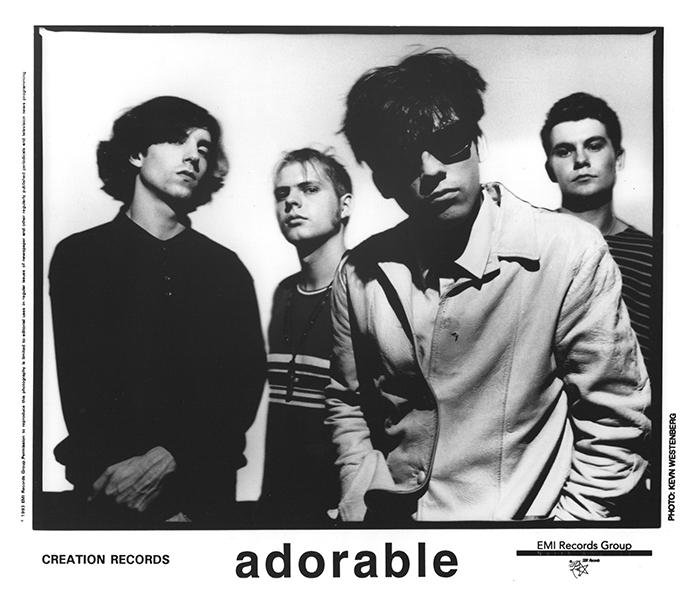
With a new album from Pete Fij and Terry Bickers, We Are Millionaires, soon to be released, we took the opportunity of talking to Pete about his experiences in Adorable, a band that should have been huge, but who were hindered by their poor relationship with the powerful music press of the early 1990s.
Coventry-based university students Piotr Fijalkowski (Pete Fij, vocals and guitar) and Stephen Williams (Wil, bass) originally put together a band called The Candy Thieves in 1990 but soon grew tired with the direction they were taking. Moving quickly to replace their second guitarist with Robert Dillam, the threesome sought for a new sound, and the recruitment of drummer Kevin Gritton to the ranks saw all the pieces in place for the birth of Adorable, the band everybody should have loved, but who quickly became the band everybody loved to hate.
Theirs is a fascinating story. Adorable wrote some great songs, played some electrifying gigs and at one time appeared to have the world at their feet, but their star was short-lived. Falling foul of the all-powerful British music media, they were shunned, ridiculed and ignored. Theirs is a tale of how not to promote a band. How not to do an interview and how to pick your timing extremely badly.
Inspired by artists such as Echo & The Bunnymen, The Jesus & Mary Chain and The Psychedelic Furs, Adorable arrived on the scene just as Shoegaze was waning and just before Britpop really took off. It was easy for lazy journalists in the media to label them as just another band hanging on to the coattails of a fading genre, yet it would have taken only one gig for them to realise that Adorable were as far removed from Shoegaze as the Ramones were from Prog. This was not a band creating soundscapes whilst staring at their feet introvertedly. Adorable weren't a band shrouded in doubt and uncertainty. Adorable were bursting with confidence, self-assurance and totally in your face. They exuded belief, and backed it up with aggressive live performances. They had the tunes, the look, the attitude and the talent to make it all the way to the top. And they so nearly did.
Regularly playing to audiences of thirty or forty people, the band pulled off something of a coup when they got themselves on to the bill of a major showcase of unsigned bands being held at The Venue in South London in January 1992. The event was being sponsored by the NME and all of the independent record labels were sending their A&R men to check out the talent on offer. Adorable were only too aware that this may be their only chance of getting themselves signed and breaking through into the major league and, indeed, it was looking like an auspicious time for them. They had recorded an EP for Pat Collier's Money To Burn record label which included the tracks 'Sunshine Smile', 'I'll Be Your Saint' and 'Breathless' and it had attracted positive interest from the music press. Ultimately, it was never to make it to release. Adorable played their hearts out at The Venue and to everybody's surprise, they were snapped up by Alan McGee of Creation Records. Everybody had thought the major players would move for the highly-rated Suede, but McGee, as always, had his own ideas and walked away with one of the bands from the bottom of the bill.
'Sunshine Smile' would still turn out to be the band's first single, but it would appear in April 1992 on Creation Records after Adorable had toured supporting the hugely popular Curve. The single made Record Of The Week in the NME and topped the independent singles chart, yet little did the band know this would represent the high water mark of their musical career. It was all downhill from here.

The problems really began in the band's first series of interviews with the music press. Many groups at the time would go into print slagging off the music of the day and emerge as admirable anti-heroes. Adorable came over as arseholes, posh kids talking about French cinema and the writings of Proust while dismissing their peers, branded in their first NME interview as "the cockiest new band in pop" and "cocksure, throat-grabbing, individualist, sun-shines-out-of-my-ass limelight muggers". The first quote from them came from Wil and little did he know at the time that he was hammering nails into his own coffin. "I'd not only encourage people to stop buying records, but I'd encourage them to go en masse back to the record shop with their record collections and return them. Even if they won't give you a refund. No-one's doing anything that's worthwhile. They shouldn't be taking up space in your rooms."
If the press hated their attitude, McGee loved it and would work to promote the band in that light, producing promo pictures of the band overlaid with a sign that said 'Arrogant'. A Creation press release declared, "Adorable have established a dangerous reputation as the cockiest band in pop music. Their self-confidence transcends mere enthusiasm, rivalling the insolence of bands like The Sex Pistols." It was a tactic that would backfire massively, and the negatives began almost immediately with a live review by Paul Lester in Melody Maker (18th April 1992) declaring, "Schoolkids in a scout hut playing Echo tracks with feedback is not what I dashed across London for, believe me. Adorable aren't sassy, they're not sexy, they're not sharp, they don't even slouch with style. And they careen through every title in their set at the same breakneck speed, at the same deafening volume, all of which, not surprisingly, makes all the songs sound the same."
It got worse. Creation chose to release 'I'll Be Your Saint' as the band's second single containing the legendary lyrics, "I'll be love, I'll be your god." Oops. It was the ultimate bad luck that the review copy fell into the hands of Melody Maker journalists The Stud Brothers, ludicrously intelligent and thoughtful writers who had a fascination for innovation and style, and ones who couldn't see anything new in Adorable, certainly not enough to justify the rhetoric.
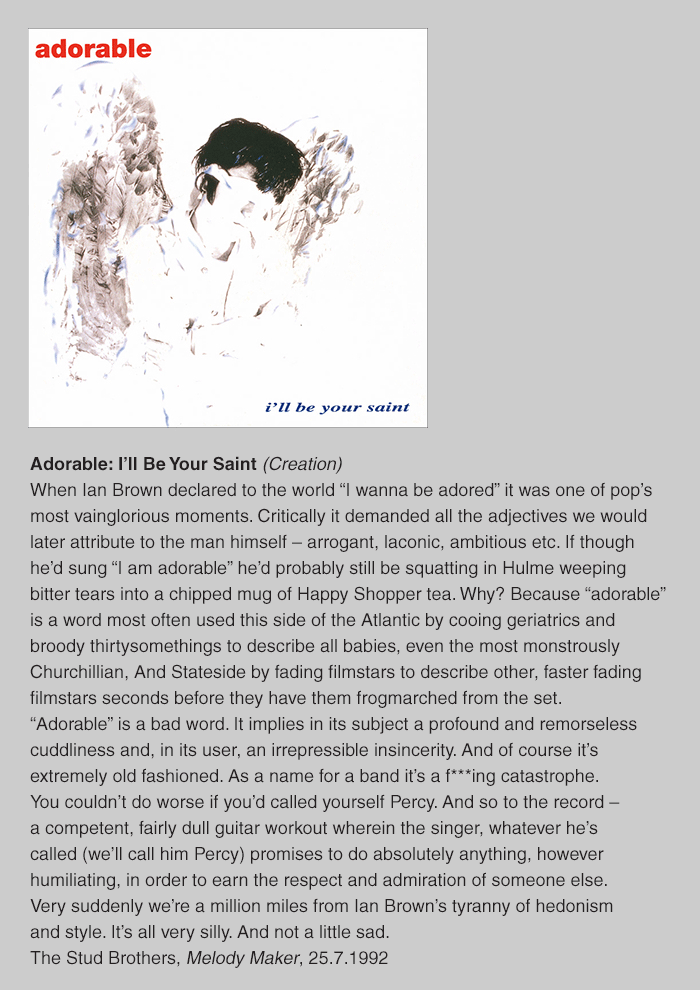
For Pete, the band's name was light-hearted. "So many bands call themselves something in order to look cool or desirable, so I wanted to poke fun at that notion. Instead of skirting round the issue and coming up with a coolish sounding name that would make us sound adorable, we figured we'd just cut straight to the chase." And not everybody was alienated by the band's media image for, despite the put-downs, all of Adorable's early singles reached the top five of the independent singles chart. The third single 'Homeboy' was quite startlingly good and with some positive publicity could have achieved great things, but it never happened. This left some of us shaking our heads in confusion for though Adorable were not a particularly innovative band, for some of us they were the perfect antidote to the introversion of shoegaze and their music was bright, intelligent and uplifting. But there is little doubt the negativity of the press played a major part in preventing them from reaching a wider audience. The debut album, Against Perfection, struggled up to number seventy in the main albums chart whereas a boost from the press would have seen it hit the top thirty at least. It was a fine record, one of the best indie debuts of all time, yet the dice were loaded firmly the other way. It was almost unheard of for the music press to ignore records from bands on major indie labels, but Melody Maker forgot to review later Adorable singles whilst giving plenty of space to fellow Creation acts 18 Wheeler, BMX Bandits and Idha. No wonder the band were worried. And beginning to blame each other.
A second album, Fake, was recorded in too much of a hurry, leaving Pete particularly unhappy, and if your singer doesn't like the record there was little chance the press would give it much time. NME, who had been kinder to the band than most, got the title of the album wrong in their five-out-of-ten review in September 1994, calling it Vendetta and accusing the band of "drenching us with tawdry non-songs and dashed promises," and slating the "anodyne, limp-wristed nature" of the record. At each other's throats and dropped by their financially-crippled label, Adorable were quick to call it a day later that year.
Pete went on to record with Polak before retiring to Sussex where he recorded an acoustic solo album, the tapes of which lay in his kitchen drawer for years until he once again found enthusiasm for his music. This came when Pete teamed up with legendary guitarist Terry Bickers (House Of Love) and the duo released their first album, Broken Heart Surgery, in July 2014, many of the songs reworkings of those on Pete's solo album. It was a beautifully downbeat record full of wit and charm and bloody fine songs which met with a good response. Now the pair are back with their second outing, We Are Millionaires, due for release this summer which, no doubt will bring a little shade to the sunshine.
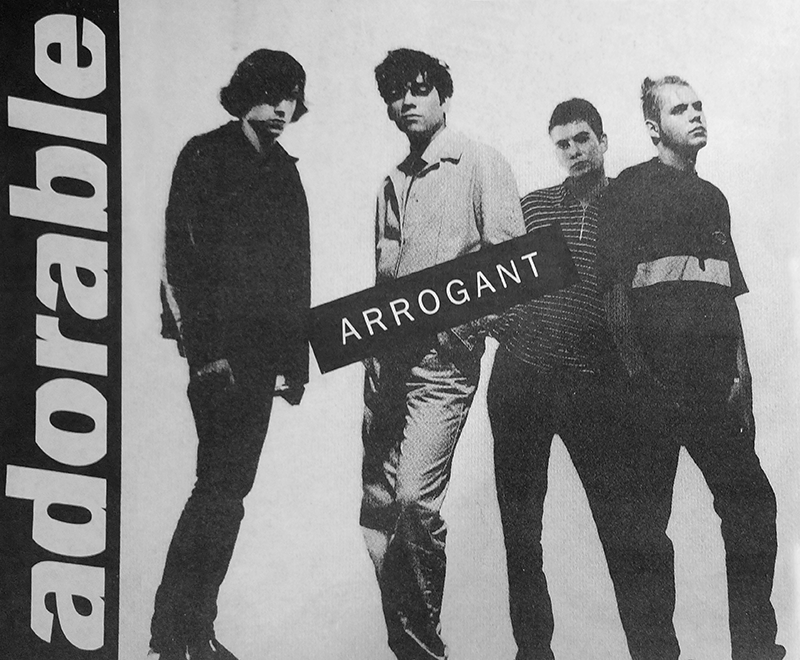
We met up with Pete in his home town of Worthing and took him back to the NME Showcase gig of January 1992 where he and his bandmates had been blown away by Suede....
Was it true that you are the person who tipped Melody Maker off about Suede?
Was it true that you are the person who tipped Melody Maker off about Suede?
Yeah. I’m sure there were lots of other people who were tipping them off but basically we had an interview with Steve Sutherland who was then Melody Maker’s Assistant Editor or maybe about to become Editor, and we had seen them at the gig, at the Venue gig, and we really liked them. We kind of exchanged telephone numbers and kept in touch with them. I mean they had played a blinding gig that night and we thought they were excellent – and, uh, they hardly got any offers and we were really surprised, we couldn’t understand it. There was this label called Nude who no-one had heard of and that was pretty much it and we were a bit bemused because we thought they were excellent. The thing is at the time, ironically, we sounded like a lot of other bands who had been around maybe four of five years before, such as the Bunnymen and the Mary Chain, so a lot of the A&R people could get their heads around us because there was a reference point. But with Suede there was no reference point. They were going T Rex, they were going, “That’s music from ages ago, who’s going to want to listen to that?” But ironically that’s why they were so good because they didn’t sound like anything else around at the time. So we were sort of banging on about them to everybody we knew saying they’re great, they’re great, and we did the interview with Steve Sutherland and the interview finished and he said, “Well I saw them and I just don’t get it, I just don’t get it at all.” We told him to go and see them again because they were absolutely brilliant and he said, “Alright I’ll give them a second go,” and he went to see them a couple of days later and was totally blown away. You know I’m sure he had heard it from other people as well, but we were raving on about them for ages.
It has been reported that you were the first band to sign for Creation not to earn a fifty-fifty share?
I can’t remember the exact details but we probably were, yeah. Basically they had just signed a big deal with SBK, an American label, so the difference was we got a far more significant advance which meant that we could pay ourselves a wage.
Sixty grand?
Yeah.
What does that mean in practice? Do they give you that, is that yours?
Yeah, they give you half of it up front and half of it when your album has been delivered and accepted.
So you got thirty thousand pounds?
Basically your manager gets 20% so you have to take 20% off that, so that leaves you with £48,000, and then you only get half of that and that’s got to last you probably a year and four of you have got to live on that.
So it gives you enough to get by on?
Yeah, you have to put it in the context that that was in 1992 so £48,000 was significantly more than it is now. And in terms of just leaving university we were probably better off than most of our friends who were getting their first jobs. It wasn’t enough to buy a house, but it meant we were no longer just scraping by and we’d had shitty jobs. I hadn’t signed on but one or two of the others had been signing on – so it was a big leap. It felt like a big change all of a sudden not really having to worry about money. Not in a champagne and caviar type existence, but big for us in our early twenties.
It took the pressure off?
Yeah. So we were able to do that. Not being paid 50/50 wasn’t really an issue as far as I was concerned, for the best part of three years I was being paid to do what I wanted to do.
That’s £20,000 more than Oasis got.
So, not bad. Yeah, there you are. Who’s laughing now? In your face, Oasis.
Of course that deal with SBK meant your stuff was available in America as well?
Yes, that’s right. But we got really shafted by the whole SBK thing. After that happened Creation went and signed a deal with Sony and the Sony deal pretty much killed the SBK deal and SBK were really unhappy. They felt they had been duped and unfortunately they hit out in a really crappy way by taking it out on us. We were like the child in the unhappy marriage and being used as a hostage. We were due to go out to the States to do a tour. In those days touring didn’t basically pay for itself. Unless you were U2 or The Rolling Stones, there would always be a loss and the record company would have to pay for that, but it was seen as a very good way of advertising because you were doing gigs, you would get lots of press and local radio. So we were going out to the States but the label, about three weeks before, announced that they weren’t going to fund it. They were going to pull our tour because they wanted Creation to fund it. There was no reason why Creation should fund it, though, because it had always been the responsibility of the American label to fund tours in America. It was a really, really awkward situation and in the end the band ended up funding part of the tour ourselves because we just didn’t want to risk not going out and playing the States. So we ended up paying to do our own tour.
There were stories about you in the States ripping down your own posters.
Yeah, things hadn’t gone very well in the UK and our relationship with the press had soured pretty quickly and we were quite excited to go out to the States because this was like a chance to start again, people not knowing who we were, so we were genuinely really excited. It was like, let’s start again. And then we got there and some bright spark at the label in the States had come up with the idea that we were “Adorable, the band you love to hate” and we were sort of portrayed as JR Ewing bad guys which we didn’t want to play along with. We just didn’t want to do that. And then every interview would get two-thirds of the way through and the interviewer would say, “So what happened, they said that you are the band that people love to hate but you seem alright?” and we just kind of had to go, “Yeah, our label thinks it’s a good way to market us.” The whole thing slowed down because we weren’t prepared to see it through. We weren’t prepared to play that game.
Whose idea was the famous advert then – when the album came out?
I think it was McGee’s actually. I just wore a t-shirt that said 'Arrogant' or something like that on it and people kept asking for them so we made some up, and McGee really liked it. He just said, “Let’s do an advert that says “Adorable Arrogant The Band you Love to Hate” or something like that.
Did he encourage the whole antagonistic thing in the press?
He was quite a difficult character to be honest through most of it. I think a lot of the time he had a disdain for the press. He was more interested in the music, but he quite liked the rock and rollness of it. You know McGee was far more of a rock and roller than we ever were. Maybe not we, certainly more of a rock and roller than me – so he had more or as much attitude as me and certainly in terms of the lifestyle that he led he was certainly more rock and roll than I ever was. I never got caught up in the drinks and drugs and all that. I wasn’t interested in the trappings of rock and roll; I didn’t get into a band to be in a rock and roll band. It was all about the music for me. Not all about the music, I suppose, it was the total package, but it wasn’t about living a rock and roll dream. I think some of the other people in the band enjoyed that, those aspects, and that’s fine. There’s nothing wrong with that, it’s just not what I wanted to do.
Are you still in touch with the band?
Yeah, I still see them. We had our 20th anniversary in March 2010 and we all got together. It was the first time that all four of us had been in the same room for fifteen, sixteen years.
Any chance of you playing together again?
No, I don’t think so.
Not even a one-off?
I can’t, no. I can’t really see the point to be honest. My experiences of being in a band weren’t necessarily very enjoyable ones so I kinda fail to see the point of me going back and re-living that. You know, there were lots of tensions in the band and that’s all resolved now. We are in a position where all four of us can be in the room at the same time and there are no longer any issues, but it’s taken us fifteen years to get to that stage so why would I jeopardise that? With the exception of me, everyone’s got a job now and there’s no way we are going to go and do anything with it other than having a laugh, and I’m not going to have a laugh and I won’t be laughing. I don’t see the point. I just don’t want to get back together for the sake of it. 90% of the time bands get back together again, people go along, and they are happy at the start, but ultimately it’s never quite as good so I’m just quite happy to let it go. If there was something really exciting that I could do ... you know I’ve always wanted to play at the Albert Hall. If someone said you can do a gig at the Albert Hall I would consider it. If somebody offered me a ridiculous amount of money then I would consider it because I need money, but realistically no one is going to offer me a ridiculous amount of money or a gig at the Albert Hall, so it isn’t going to happen. I’m totally over Adorable. It’s like when you’ve had a relationship and it’s over, then if someone said, “Do you want to go and sleep with your ex-girlfriend?” you say “No”. It doesn’t mean you have a hang-up about her, it’s like it’s just part of the past. It’s over and you’ve moved on. It’s the same. I don’t really see it as a hang-up; it’s just part of the past. I’m happy being friends with the people in the band.
Would you play Adorable songs if you were doing a solo gig?
Yeah, I do – I went out to Italy and did a solo gig and I did a whole load of Adorable and Polak songs. I don’t have a problem with them you know, they are my songs, I have ownership of them so I’m totally comfortable playing them. It took me a long while to do that, to kinda actually claim ownership of them and so that it’s OK to play them. When I play with Terry we do ‘A To Fade In’, we’ve done ‘Homeboy’ before, we’ve done a Polak song before, and there are one or two other songs we might consider doing.
‘Homeboy’ is such a brilliant record.
Yeah it’s one of my favourites too. Basically the song stemmed out of stuff that either myself or Wil, the bass player, had written. We rarely had completed songs. We had like little bits, bits and bobs, and we would kinda stick them together. I would have a guitar riff and a basic structure or Wil would have a bassline and we would kinda work something out from that. They were initially quite disjointed and we joined them together, me and Wil primarily doing most of the work on them. Actually, ‘Homeboy’ was our worst ever performing single. It just completely died and we couldn’t understand it at all cos we thought it was - it was the single – we thought it was ...
Sure fire?
Yeah, within an indie context. We didn’t think it had crossover appeal but within an indie context.
I would have thought it would have had more crossover appeal than any of the other ones.
It was quite long that was the only thing about it and it just stiffed. We got really worried at that point actually because we were going, “Bloody hell, this is a really good single and if that crashed...” So yeah we got very concerned.
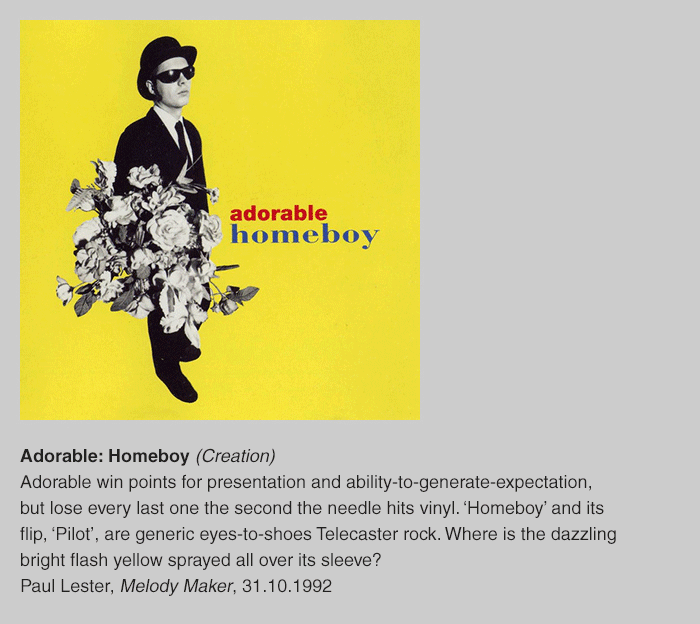
‘Favourite Fallen Idol’ is punk rock isn’t it?
That was one of the few that I think I wrote. But that one is quite unusual, I mean that’s not typical of what we did. It went really well and we liked it. I would have liked to have done lots of songs like that but it was nice to have that one song. It was one where the recording of it really, really brought it out. Perhaps the recording of it brought it to its full potential because it could have been really crap actually because it’s just fast chords and I don’t usually like songs like that. It’s somewhere in between punk and post-punk. Pre-post-punk that’s kinda where it is. That was one track McGee thought should have been a single. That and ‘Cut #2’, McGee always wanted that to be a single.
Really? You don’t like that one do you?
I like it now.
It’s one of my favourite tracks but how could you ever see that as a single?
It was the drugs. Yeah, he was always convinced about it, but I couldn’t hear it being a single. ‘Sistine Chapel Ceiling’ I think was the one. I think by and large we picked the right singles, apart from ‘I’ll Be Your Saint’ which was a bad mistake.
Why?
I don’t think it’s a brilliant track. I think it is quite good, but it totally cemented us as arrogant cocks basically because of its title. I kinda quite like the sentiments of it but – unfortunately at the time we didn’t have ‘Homeboy’ recorded. If we had had it recorded at that point I think that would have been really big.
That was one of the few that I think I wrote. But that one is quite unusual, I mean that’s not typical of what we did. It went really well and we liked it. I would have liked to have done lots of songs like that but it was nice to have that one song. It was one where the recording of it really, really brought it out. Perhaps the recording of it brought it to its full potential because it could have been really crap actually because it’s just fast chords and I don’t usually like songs like that. It’s somewhere in between punk and post-punk. Pre-post-punk that’s kinda where it is. That was one track McGee thought should have been a single. That and ‘Cut #2’, McGee always wanted that to be a single.
Really? You don’t like that one do you?
I like it now.
It’s one of my favourite tracks but how could you ever see that as a single?
It was the drugs. Yeah, he was always convinced about it, but I couldn’t hear it being a single. ‘Sistine Chapel Ceiling’ I think was the one. I think by and large we picked the right singles, apart from ‘I’ll Be Your Saint’ which was a bad mistake.
Why?
I don’t think it’s a brilliant track. I think it is quite good, but it totally cemented us as arrogant cocks basically because of its title. I kinda quite like the sentiments of it but – unfortunately at the time we didn’t have ‘Homeboy’ recorded. If we had had it recorded at that point I think that would have been really big.
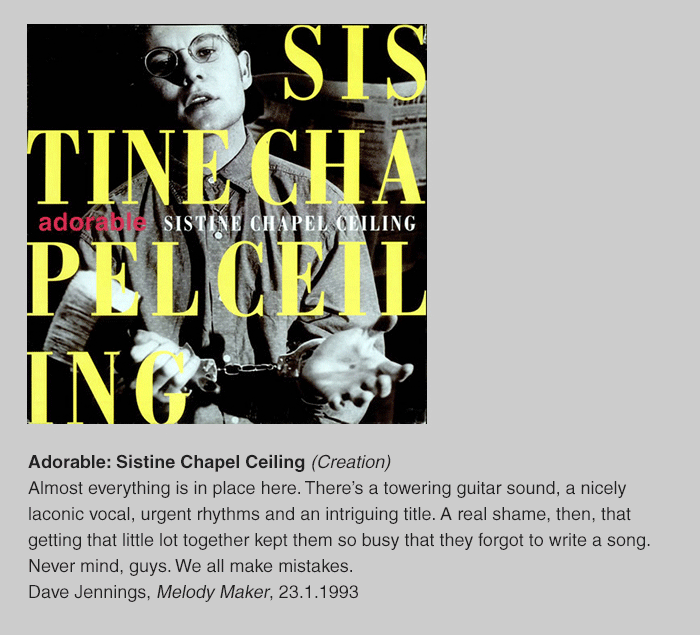
The second album isn’t as well produced as the first one is it?
No, I don’t really like the second album but it’s interesting there are lots of people who really like it. They keep coming back to me and telling me they like it and I have a problem with it because I don’t really like it. I think it’s – it’s not a dreadful album but it’s not ...
It’s less melodic...
Yeah, yeah ... I just don’t like it. We really liked the first album but Creation wanted – McGee’s thing was that there was a real power to us live and he felt that wasn‘t coming across on the records. He felt the energy from our live performances wasn’t coming across and the records were too over-produced. So there was an attempt to try and get more of a live sound on the recordings but I wasn’t really comfortable with it. I didn’t think the songs were fleshed out enough and there was a lot of issues within the band. In an ideal world what we really needed was to stop the clock and take six months out but we felt that we couldn’t take time out because we were worried about bands who were taking too much time off because by the time they came back nobody gave a shit about them. Ultimately we didn’t take much time off and when we came back nobody gave a shit about us so maybe we would have been better off just taking some time out. Plus the fact that if we had just waited another six months the whole Britpop thing was upon us and any bastard with a guitar suddenly became very valid and interesting ... we might have accidentally got in on the coattails of that. But, yeah, the songs weren’t fully realised. We went in underwritten. The band weren’t interested in writing songs – the rest of the band resented doing anything to do with the band. They didn’t want to rehearse and that created massive tensions.
They were enjoying the trappings of being in a band without putting in the hard work?
That’s how it felt to me. Maybe their perceptions will be slightly different but, yeah. Wil and I had become far more distant. We didn’t fall out but we were just not the strong unit that maybe we had been at the start and my relationship with the other two was quite poor. I think we all became more distant from each other. At best distant and worse it became quite fractious. It wasn’t a very pleasant experience. It wasn’t a pleasant experience for me and it wasn’t a pleasant experience for the other members of the band either.
No, I don’t really like the second album but it’s interesting there are lots of people who really like it. They keep coming back to me and telling me they like it and I have a problem with it because I don’t really like it. I think it’s – it’s not a dreadful album but it’s not ...
It’s less melodic...
Yeah, yeah ... I just don’t like it. We really liked the first album but Creation wanted – McGee’s thing was that there was a real power to us live and he felt that wasn‘t coming across on the records. He felt the energy from our live performances wasn’t coming across and the records were too over-produced. So there was an attempt to try and get more of a live sound on the recordings but I wasn’t really comfortable with it. I didn’t think the songs were fleshed out enough and there was a lot of issues within the band. In an ideal world what we really needed was to stop the clock and take six months out but we felt that we couldn’t take time out because we were worried about bands who were taking too much time off because by the time they came back nobody gave a shit about them. Ultimately we didn’t take much time off and when we came back nobody gave a shit about us so maybe we would have been better off just taking some time out. Plus the fact that if we had just waited another six months the whole Britpop thing was upon us and any bastard with a guitar suddenly became very valid and interesting ... we might have accidentally got in on the coattails of that. But, yeah, the songs weren’t fully realised. We went in underwritten. The band weren’t interested in writing songs – the rest of the band resented doing anything to do with the band. They didn’t want to rehearse and that created massive tensions.
They were enjoying the trappings of being in a band without putting in the hard work?
That’s how it felt to me. Maybe their perceptions will be slightly different but, yeah. Wil and I had become far more distant. We didn’t fall out but we were just not the strong unit that maybe we had been at the start and my relationship with the other two was quite poor. I think we all became more distant from each other. At best distant and worse it became quite fractious. It wasn’t a very pleasant experience. It wasn’t a pleasant experience for me and it wasn’t a pleasant experience for the other members of the band either.
And we were very tired as well, we had done loads of touring. We had toured all over the world and came back knackered. It suddenly felt like we had just a few months to write songs when up to that point we’d had years to write the first album. When we came back we’d have a few months off in between touring and we didn’t particularly want to go into the studio and write stuff. We just wanted to catch up with our lives but there was a realisation we needed some songs – then there was a realisation that we didn’t have enough strong songs so we sort of had a second round of songwriting. Some of the strongest songs came in at the end like ‘Vendetta’. I think that and ‘Submarine’ were written right at the end when we realised we needed to write some more stuff and I think they are the strongest songs. It’s a pity we didn’t take another round or couple of rounds. If we had written another three or four stronger songs then the whole album would have been that much better, but it was very much what we had. We’d written thirteen or fourteen songs and we just went and recorded them all and they were the b-sides and the album. There was nothing else really, there was very little to work with.
Were ‘Kangaroo Court’ and ‘Vendetta’ aimed at your press coverage?
Yeah, ‘Kangaroo Court’ was very much written about my attitude, about how I felt that I’d been treated. I felt very frustrated about that in Adorable. We got interviewed about our debut single but we never got interviewed after that. We got continually slagged off in the press and yet I was never given the opportunity to answer any of those criticisms. I thought that was incredibly unfair but there is nothing more dull than a pop star going on about being a pop star, or a musician going on about the press and being misunderstood – it’s the classic self-fixated, head-up-his-arse musician who writes songs about how unfair it all is, and that’s what I did. The whole album reflected the realisation that we were fucked, so the whole tone is far more insular, inward looking and under attack.
Whereas Against Perfection sounds almost triumphant?
Yeah it is. With the first album you’re in your early twenties and you’re like “Yeah, let’s go – isn’t life amazing?” The second album is very introspective and it’s all to do with the experiences of being in the band. Internally in the band it was no longer a particularly harmonious experience.
Weren’t Creation big enough to pull an interview or something for you?
Obviously not. I’ve no idea how these things work, not paying them enough obviously. I think after we finished the first album we felt really frustrated because we felt that we had delivered our part of the bargain. What I wanted to do was to create a band that was really special and do something worthwhile and valid, and we felt we had delivered that on our first album. Obviously, what we had failed to do was all the other trappings, and managing how we came across in the media. In that part we had failed miserably but musically we felt we had done everything we could. I genuinely don’t think we could have done a better album. It wasn’t within us to make a better album. I’m not saying it was the best album ever made but it was the best album we could have made and we just felt that we had done the best album we could make and nobody was going mad about it. What did we have to do?
And I think, with the second album, we talked about changing the production and things like that but there was a reticence to do so. We did discuss trying to go in a slightly different way, but within the band there was some feeling that we should just almost reproduce the first album. Almost like if we just put out the first album again then people would accept it: they would get it if we did it enough times. Ultimately what happened was that we kept on writing similar songs to the first album but they were pale imitations, so ‘Kangaroo Court’ is quite a good song but it’s not ‘Homeboy’, and ‘Radio Days’ is a bit below average and it’s not as good ‘Crash Site’. And it’s like that all the way through the album. ‘Feed Me’ is OK but it’s not ‘Glorious’ which is the track it’s trying to be. ‘Have You Seen The Light’ is a bit ho-hum and it’s definitely not ‘Breathless’. The album just felt like it was full of those, it was full of things that were trying to be like the other ones but not managing to achieve it.
Is that why you titled it Fake?
No, I don’t think so. I can’t even remember why it was called Fake. There was some incredibly important reason why it was called Fake. In the mists of time I’ve just stopped caring why it was called Fake, why it was so important.
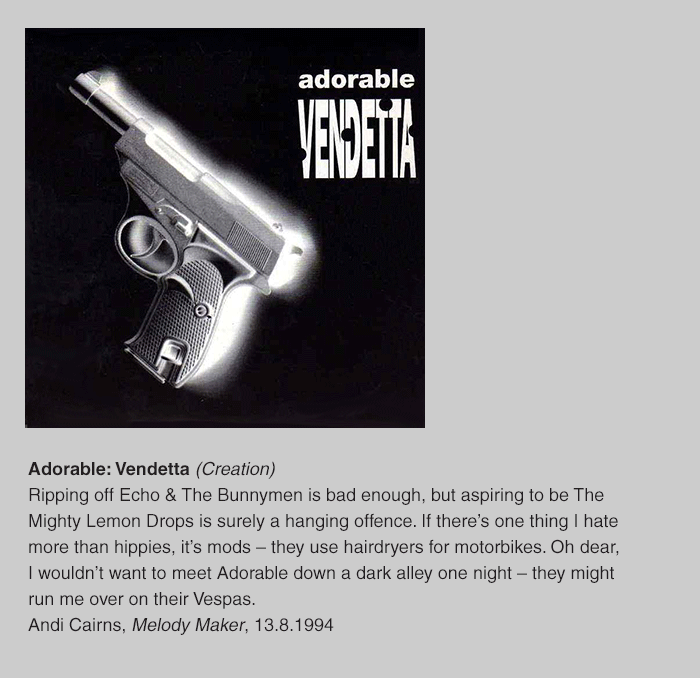
Why did you call the first album Against Perfection? Were you weighing yourself against perfection?
One of the things we were interested in were things that weren’t perfect and we liked idea that basically it’s the imperfect things in people that make them interesting. If people are perfect we don’t like them. We don’t like that perfect boy next door, we find him a bit irritating. We want people to be flawed. I always used to say my favourite James Bond film is On Her Majesty’s Secret Service with George Lazenby and the reason I like it is because he’s really flawed, not as an actor but the James Bond character is very fragile in it. He even cries in it and he is no longer this all-powerful person. He becomes a human being because he’s not perfect. That’s why we like hand-made objects over machine-made things because in things made by the craftsman you can see the tiny imperfections. That’s what makes it organic. We were always bringing this up and we were aware of our own failings. ‘Favourite Fallen Idol’ was about how our idols had failed us but also an acknowledgement that we would ultimately fail people as well. That’s kinda part of the job description. We were interested in failure and throughout my whole career making music, a lot of the stuff I have talked about has been an interest in failure. Some people believe that it does become a self-fulfilling prophecy if you go on about it and maybe they’re right. I haven’t become a fabulously successful musician so maybe I should shut up talking about failure but it’s just one of those things.
So opposed to perfection rather than holding yourself up to perfection?
Yeah, it’s not about going up against perfection. When we were coming up with the album title it was originally going to be called Against Nature. We had the cover done of the burning flower and it was going to be called Against Nature and then we found out that Fatima Mansions had brought out an album a couple of years before called Against Nature so we felt we couldn’t bring that out. But we had this album sleeve that we really liked so then we were going to call it Against Creation. It wasn’t against the label but we liked the playfulness of it, but we bottled it. Well, we had twenty-four hours to submit the artwork and our relationship with Creation wasn’t great, so we just thought it would be pushing our relationship too far. Our manager was very unhappy as he was the person who would have had to go in and tell them this, so we decided not to call it that. McGee afterwards said we should have called it Against Creation. He loved the title but our relationships with all the departments in Creation were very strained. We weren’t liked.
So they didn’t do enough for you because of that?
Well ultimately if you don’t like a band either musically or as people and you’ve got two jobs on your desk and one is for a band that you do quite like, and one is for a band you don’t like – know-it-alls, all art students who have been to University and who you think are gobby shites – then which is the job that you are going to push more? I would be the same you know. When you are working with people you’ve got to get on with them. I don’t hold anything against them.
When you got removed from the label, Creation was on the brink of being wound up and only survived by the skin of their teeth, how did they break it to you?
They didn’t break it to me, they broke it to our manager. Yeah, we just got called in. We were still on tour at the time, we were doing our UK tour. We had a European tour lined up so we had to pull some of the dates on that as we had no funding. We pretty much knew it was coming. We could see the second album wasn’t doing very well. We were doing gigs and the attendances weren’t strong so we knew absolutely that we needed to sell records. We knew that it came down to economics. We had been settled, by Creation standards, quite a big deal and were one of the first bands to get a reasonable advance, so we knew the economics of it.
Was it a relief in some ways?
It was certainly depressing but it kind of made our minds up because we decided quite quickly that we weren’t going to go around looking for other labels. It felt like in those days that bands had their moment and then they went away and it finished, whereas now there is far more of a culture of bands ebbing and flowing in and out. Back then it didn’t feel like that was the culture, it felt like you had your moment and then you just split up. You didn’t embarrass yourself by lugging the carcass of your band around when nobody really wanted you so we decided very quickly to split up, from a sense of pride actually as much as anything else. We felt we’d been rejected enough and we didn’t particularly want to go around to lots of labels to be rejected by them as well, so we didn’t even approach any labels. We decided just to call it a day. Ultimately we didn’t feel that we had an awful lot going for us cos it wasn’t that we were critically acclaimed so we didn’t have that to hold on to. There were fewer fans coming to the gigs so we felt like there were diminishing returns and the band just weren’t getting on very well. It wasn’t like we were a tight-knit unit who could see this through. If you were best buddies and you are a gang then you’ve got each other to lean on, but we didn’t have that fall-back option either. So we decided very quickly to split and that was a relief. Not necessarily getting dropped from Creation but making the decision to split was a massive relief for me and we did a gig in Brussels and that was our final gig and we announced on stage that we were splitting up. That evening we went out drinking, the whole band, and it was the first time we were able to talk to each other and get on with each other and it was like a switch had been pressed and all of a sudden I didn’t mind being in the room with these people and we were actually talking to each other.
You should break up more often.
Exactly.
One of the things we were interested in were things that weren’t perfect and we liked idea that basically it’s the imperfect things in people that make them interesting. If people are perfect we don’t like them. We don’t like that perfect boy next door, we find him a bit irritating. We want people to be flawed. I always used to say my favourite James Bond film is On Her Majesty’s Secret Service with George Lazenby and the reason I like it is because he’s really flawed, not as an actor but the James Bond character is very fragile in it. He even cries in it and he is no longer this all-powerful person. He becomes a human being because he’s not perfect. That’s why we like hand-made objects over machine-made things because in things made by the craftsman you can see the tiny imperfections. That’s what makes it organic. We were always bringing this up and we were aware of our own failings. ‘Favourite Fallen Idol’ was about how our idols had failed us but also an acknowledgement that we would ultimately fail people as well. That’s kinda part of the job description. We were interested in failure and throughout my whole career making music, a lot of the stuff I have talked about has been an interest in failure. Some people believe that it does become a self-fulfilling prophecy if you go on about it and maybe they’re right. I haven’t become a fabulously successful musician so maybe I should shut up talking about failure but it’s just one of those things.
So opposed to perfection rather than holding yourself up to perfection?
Yeah, it’s not about going up against perfection. When we were coming up with the album title it was originally going to be called Against Nature. We had the cover done of the burning flower and it was going to be called Against Nature and then we found out that Fatima Mansions had brought out an album a couple of years before called Against Nature so we felt we couldn’t bring that out. But we had this album sleeve that we really liked so then we were going to call it Against Creation. It wasn’t against the label but we liked the playfulness of it, but we bottled it. Well, we had twenty-four hours to submit the artwork and our relationship with Creation wasn’t great, so we just thought it would be pushing our relationship too far. Our manager was very unhappy as he was the person who would have had to go in and tell them this, so we decided not to call it that. McGee afterwards said we should have called it Against Creation. He loved the title but our relationships with all the departments in Creation were very strained. We weren’t liked.
So they didn’t do enough for you because of that?
Well ultimately if you don’t like a band either musically or as people and you’ve got two jobs on your desk and one is for a band that you do quite like, and one is for a band you don’t like – know-it-alls, all art students who have been to University and who you think are gobby shites – then which is the job that you are going to push more? I would be the same you know. When you are working with people you’ve got to get on with them. I don’t hold anything against them.
When you got removed from the label, Creation was on the brink of being wound up and only survived by the skin of their teeth, how did they break it to you?
They didn’t break it to me, they broke it to our manager. Yeah, we just got called in. We were still on tour at the time, we were doing our UK tour. We had a European tour lined up so we had to pull some of the dates on that as we had no funding. We pretty much knew it was coming. We could see the second album wasn’t doing very well. We were doing gigs and the attendances weren’t strong so we knew absolutely that we needed to sell records. We knew that it came down to economics. We had been settled, by Creation standards, quite a big deal and were one of the first bands to get a reasonable advance, so we knew the economics of it.
Was it a relief in some ways?
It was certainly depressing but it kind of made our minds up because we decided quite quickly that we weren’t going to go around looking for other labels. It felt like in those days that bands had their moment and then they went away and it finished, whereas now there is far more of a culture of bands ebbing and flowing in and out. Back then it didn’t feel like that was the culture, it felt like you had your moment and then you just split up. You didn’t embarrass yourself by lugging the carcass of your band around when nobody really wanted you so we decided very quickly to split up, from a sense of pride actually as much as anything else. We felt we’d been rejected enough and we didn’t particularly want to go around to lots of labels to be rejected by them as well, so we didn’t even approach any labels. We decided just to call it a day. Ultimately we didn’t feel that we had an awful lot going for us cos it wasn’t that we were critically acclaimed so we didn’t have that to hold on to. There were fewer fans coming to the gigs so we felt like there were diminishing returns and the band just weren’t getting on very well. It wasn’t like we were a tight-knit unit who could see this through. If you were best buddies and you are a gang then you’ve got each other to lean on, but we didn’t have that fall-back option either. So we decided very quickly to split and that was a relief. Not necessarily getting dropped from Creation but making the decision to split was a massive relief for me and we did a gig in Brussels and that was our final gig and we announced on stage that we were splitting up. That evening we went out drinking, the whole band, and it was the first time we were able to talk to each other and get on with each other and it was like a switch had been pressed and all of a sudden I didn’t mind being in the room with these people and we were actually talking to each other.
You should break up more often.
Exactly.



